MercoPress. South Atlantic News Agency
Tag: British Antarctic Survey (BAS)
-
Monday, April 18th 2022 - 09:49 UTC
UK investing heavily in Antarctica and Arctic research to remain world leader in polar science
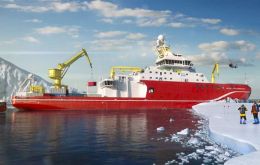
The UK is investing in modernizing its Antarctica and Arctic research facilities, with total funding of £670 million, including £290 million announced this week. As a world leader in polar science, UK research conducted in the region is of global importance. This is in addition to existing science funding activities.
-
Saturday, April 16th 2022 - 08:06 UTC
Trying to understand the melting process of the largest ice shelf in Antarctica

A new study by scientists from British Antarctic Survey (BAS) has used computer modeling to rank the factors responsible for the Larsen C ice shelf melt according to their severity. The review is an important contribution to the understanding of the largest remaining ice shelf on the Antarctic Peninsula.
-
Thursday, April 7th 2022 - 09:34 UTC
New link between greenhouse gases and sea-level rise, BAS scientists
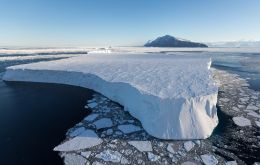
Advanced ocean modeling techniques reveal how greenhouse gas emissions contribute to warmer oceans and the resulting melting of the West Antarctic Ice Sheet. A new study by scientists Kaitlin Naughten and Paul Holland from British Antarctic Survey (BAS) provides the first evidence that rising greenhouse gases have a long-term warming effect on the Amundsen Sea in West Antarctica.
-
Friday, April 1st 2022 - 09:55 UTC
RRS Sir David Attenborough completes ice trials during maiden voyage to Antarctica
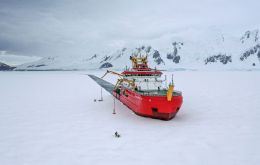
Falklands' flagged RRS Sir David Attenborough is completing ice trials during its maiden voyage to Antarctica – a critical milestone in the commissioning of Britain’s new polar ship. This is the first in a series of trials to get the ship ready for multi-disciplinary science missions.
-
Thursday, March 31st 2022 - 10:15 UTC
International team researching complex pattern of sea ice around Antarctica
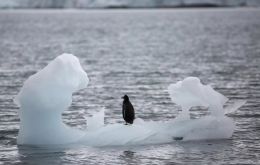
A £5m project funded by the Natural Environment Research Council (NERC) to investigate the complex changes seen in sea ice around the Antarctic begins this month (March 2022) as the sea ice extent around the continent drops to a record low level.
-
Saturday, March 12th 2022 - 06:02 UTC
New research shows that slow growth in Antarctic fish is linked to problems making proteins

Antarctic fish have adapted over millennia to survive in the freezing temperatures of the Southern Ocean but in doing so have lost their ability to grow at rates seen in their warmer water cousins. Researchers have now discovered the cellular causes of this crucial difference between Antarctic and warm water fish.
-
Saturday, March 5th 2022 - 09:39 UTC
Automation in place at BAS Halley VI Research Station
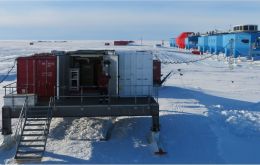
In late February, the British Antarctic Survey (BAS) Halley VI Research Station closed for the 2021/22 season. The season saw some major developments at the station, including several significant improvements and additions to its automated systems.
-
Friday, February 18th 2022 - 09:17 UTC
BAS joins project to overcome shortage of berths for scientific researchers in polar regions

British Antarctic Survey has teamed up with the National Oceanography Centre and the University of Glasgow to champion the FindAScienceBerth project, funded by the Natural Environment Research Council. The project will open up more opportunities for early career researchers and technicians, particularly from traditionally excluded groups, to join science research cruises, breaking down barriers for conducting fieldwork in marine science.
-
Saturday, February 12th 2022 - 18:20 UTC
Antarctica thick ice conditions challenge RRS Sir David Attenborough and Le Commandant Charcot
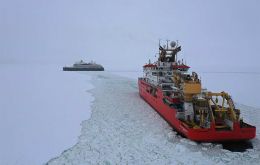
RRS Sir David Attenborough (SDA) has collaborated with the cruise ship Le Commandant Charcot in its efforts to deliver critical science cargo to the English Coast, Antarctica in support of the International Thwaites Glacier Collaboration.
-
Wednesday, February 9th 2022 - 09:35 UTC
Acoustic survey finds twilight zone in Southern ocean an emporium of fish, BAS report
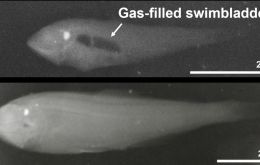
A new study highlights there could be up to four times more fish in the mesopelagic, or ‘twilight’, zone of the Southern Ocean than previously thought. Scientists at British Antarctic Survey and Bristol University discovered that by accounting for different acoustic properties of fish, the biomass, or total weight, of mesopelagic fish is likely to be 1.8 – 3.6 times higher than they previously calculated.
